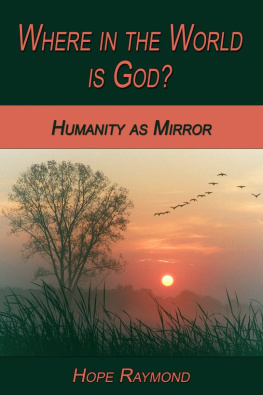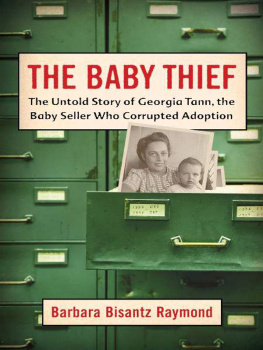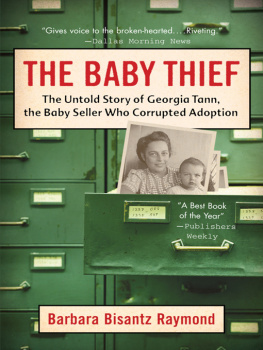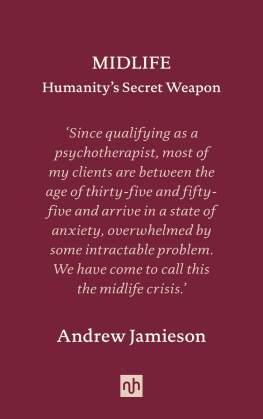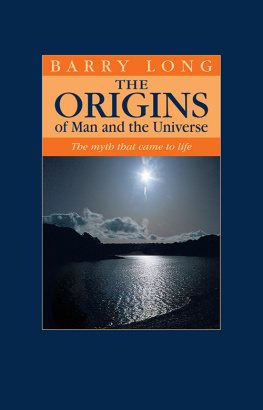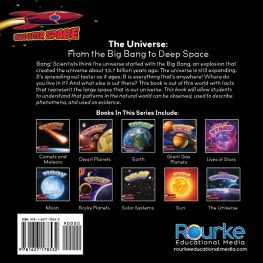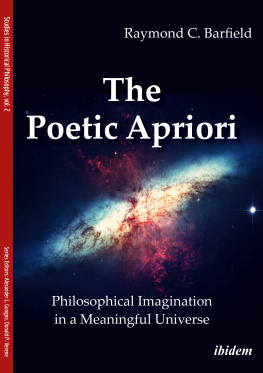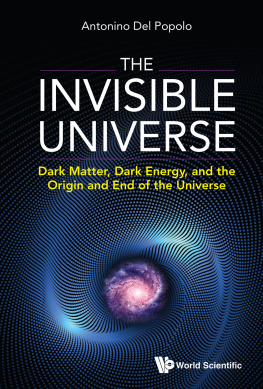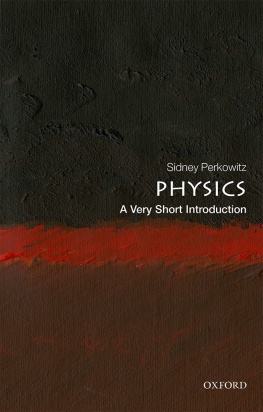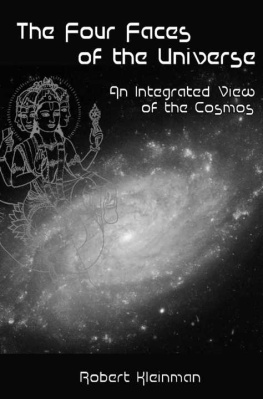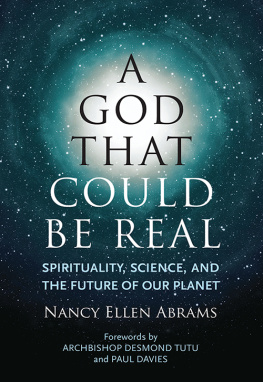Raymond - Where in the World is God?
Here you can read online Raymond - Where in the World is God? full text of the book (entire story) in english for free. Download pdf and epub, get meaning, cover and reviews about this ebook. genre: Religion. Description of the work, (preface) as well as reviews are available. Best literature library LitArk.com created for fans of good reading and offers a wide selection of genres:
Romance novel
Science fiction
Adventure
Detective
Science
History
Home and family
Prose
Art
Politics
Computer
Non-fiction
Religion
Business
Children
Humor
Choose a favorite category and find really read worthwhile books. Enjoy immersion in the world of imagination, feel the emotions of the characters or learn something new for yourself, make an fascinating discovery.
Where in the World is God?: summary, description and annotation
We offer to read an annotation, description, summary or preface (depends on what the author of the book "Where in the World is God?" wrote himself). If you haven't found the necessary information about the book — write in the comments, we will try to find it.
Where in the World is God? — read online for free the complete book (whole text) full work
Below is the text of the book, divided by pages. System saving the place of the last page read, allows you to conveniently read the book "Where in the World is God?" online for free, without having to search again every time where you left off. Put a bookmark, and you can go to the page where you finished reading at any time.
Font size:
Interval:
Bookmark:
Hope Raymond
Palo Alto, California
Copyright 2012 Hope Raymond
Smashwords Edition
(The following manuscript is the original,unabridged, unedited version of a published book, To Dance withthe Universe, available through Amazon.com in print form.)
who have within themselves
all that is needed
to play their part well
CONTENTS
DRAMATURGY NOTES
THE PLAY: Where in the World is God?
CRITICS REVIEW
APPENDICES
ILLUSTRATIONS
Zero Point Field (diagram)
Ellen DeGeneres and Portia de Rossi (photoby Axel Koester)
International student rankings (graph)
Digital-ready generation (cartoon by DickLocher)
U. S. debt (cartoon by Mike Lukovich)
Recent U.S. wars (table)
New Songdo City, South Korea (photo by LipoChing)
Decline of print news (cartoon strip byGarry Trudeau)
Robot playing a violin (photo by EugeneHoshiko)
Multiple functions of cell phones (cartoonby Dick Locher)
Avatars in Second Life (courtesy LindenLab)
ACKNOWLEDGMENTS
As incomplete as this listing is, I want toacknowledge the following individuals and groups of people who, intheir own unique ways, contributed far more than they suspect inhelping shape this book. My profoundest thanks go out to themall!
-The countless individuals, unknown to mepersonally, who lived the stories that shaped this book throughtheir actions, words and ideas.
-The many newspapers, news services,journalists and editors who provided the research and stories thatformed the core of this book. Their choice of news coverage, inresponse to human interest, largely determined what wasincluded.
-The extraordinary patience of those whoaccepted insufficient answers when they asked me, What is yourbook about? I am grateful for their interest, even though I wasunable to convey a satisfying answer until I reached the end of thebook.
-Diane Pendola and Teresa Hahn at SkylineHarvest, whose solitary cabin provided space for my thinkingthrough the meaning of the data I had collected, withoutinterruption.
-My brother, Jack, who gifted me with amonth of uninterrupted time in his home to put my thoughts aboutthe meaning of the data in writing.
-Betty Howell, for her accompanimentthroughout the entire gestation period of collecting data andwriting this book, and for her consistent encouragement and supportwith insightful comments. She was invaluable to me throughout thewhole process.
-John Petroni, who was enormously helpful inkeeping me on track, offering unending encouragement, prodding andsupport, and eliciting insights that enabled me to grow along withmy book. Without his tutelage, this Work would never have come intobeing.
-Steve, who so generously shared hiscomputer expertise, and exercised unending patience in working withhis digitally-challenged mother.
-Family and friends, for tolerating the longprocess that kept me from being as present to them as I would haveliked. They showed remarkable resilience in accepting my need forspace to think and write, which included the barrier of myanswering machine while I was writing, and tolerating long delaysin my responding to e-mails. Thank you for hanging in there withme!
-And Nikki, who faithfully lay by my side asI wrote, and whose uncanny canine sense knew exactly when I neededto take a breakand insisted I do so!
PREFACE
This morning I have been overcome with asense of gratitude and amazement that I am living in the particulartime frame that spans my life. I have felt this way about myown life for some time, since I first began to sense thatthese latter years were drawing my life together as a whole andgiving meaning to it. But what I am seeing this morning is the lifeof humanity, with that same sense of gratitude andamazement. Many times it has occurred to me that the development ofhumanity follows the same course as the development of anindividual human being, but today I see it in a much clearer way.The course of development falls into three distinct periods:
1) In the earliest eons of humanitysdevelopment, people were animists, seeing themselves as an integralpart of a world filled with magical spirits that portend good orevil. Gradually these omens became detached from the natural world,through which they manifested themselves, and took on a life oftheir own up in the heavens. These heavenly gods created their owncolony there, looking down on, and controlling, human activity. Inresponse, humans sacrificed offerings to appease them and currytheir favor.
This follows closely the pattern of anindividuals development. At first an infant makes no separationbetween herself and the world outside herself. Then she sees hermother as something other, something magical that can bring food orwarmth or dry diapersor withhold themdepending on the infantsactions. If she cries out, her mother may answer her needs. If shelies there quietly, possibly nothing will happen. The child learnshow to work with the uncertainty of her needs being met.
2) When the figure of Jesus came on thescene, his vision of the kingdom of God being within personsbrought a new consciousness. No longer did God live up in theheavens, according to Jesus, but down here within us and within theworld. Humans were not only of collective value to God as hischildren, but each human being was of value; each person mattered.The individual had emerged from being lumped together with all ofhumanity, and assumed a uniqueness and value that mattered toGod.
This second period also followed the courseof individual human development. Psychologically we would call thisperiod the development of the ego in the teenage years. The childwho has been dependent on her parents to meet her needs now strivesto become independent. She is trying to shake off that tie to herparents that keeps her from becoming a unique individual in her ownright. She struggles with the question: Who am I? Who am I apartfrom being my parents daughter?
3) Humanity is now in the process ofemerging from the second period into a third period, which drawstogether and embraces the first two periods but shifts the focus tothe life that an individual encompasses. The first period made nodistinction between the individual and the rest of life. The secondperiod saw the separation of the individual from the collective andbegan to value the uniqueness of the individual. The third periodlifts life to a higher level of being. Now that the individual hasseparated herself from her parents, or her Parent in heaven, andhas embraced the uniqueness and value of her own life distinct fromothers, she is able to engage in true relationship with theuniverse and with all of creation. She has become an adult.
Humanity has arrived at adulthood. The focushas shifted from the individual to the life the individualembraces. This includes humanity as a whole, inasmuch as eachindividual life is part of the same larger life. In the process ofhumanitys growth, the individual has developed the capacity tostep outside herself into the realm of this larger life, and toview herself and the rest of life from that perspective. She hasnot lost her individual identityit is still invaluable as a uniquehuman life. In fact, it is her primary responsibility, as no oneelse can bring her life into the fullness of being. But even as sheis living that life into its fullness, she is seeing it as one ofcountless expressions of life, each of which must be lived outfully if life is to flourish in its evolutionary movement throughhumanity.
Humanity is back where it started, as anintegral part of life itself. But now humanity stands at a moreevolved level, in which every human being embraces the entireuniverse within herself. In fact, the individual and the universehave become one. At the same time, humans have the maturity tocarry full responsibility for developing and living out their ownunique expressions of life.
Font size:
Interval:
Bookmark:
Similar books «Where in the World is God?»
Look at similar books to Where in the World is God?. We have selected literature similar in name and meaning in the hope of providing readers with more options to find new, interesting, not yet read works.
Discussion, reviews of the book Where in the World is God? and just readers' own opinions. Leave your comments, write what you think about the work, its meaning or the main characters. Specify what exactly you liked and what you didn't like, and why you think so.

